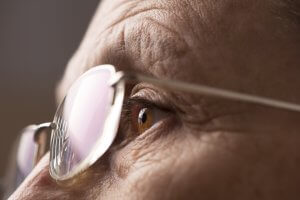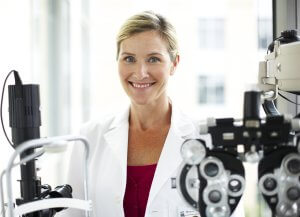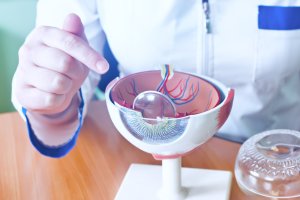Macular Degeneration Treatment in Pottsville, PA

Voted Best of Berks—
eight years in a row!
Age-related macular degeneration (AMD) is one of the leading causes of blindness in the United States. If you live or work in Pottsville, PA, get in touch with Eye Consultants of Pennsylvania to discuss treatment and surgery options.
Eye Consultants of Pennsylvania is the leading ophthalmology practice in Berks, Lancaster, Lebanon, Montgomery and Schuylkill counties, and has five convenient locations in Wyomissing, Pottsville, Pottstown, Lebanon and Blandon.
Our team of board certified and fellowship trained retina specialists will evaluate your eyes and help you manage macular degeneration before it causes severe vision loss:
- Barry C. Malloy, MD graduated from the University of Massachusetts Medical School and completed his vitreoretinal fellowship at the Washington Hospital Center in Washington, D.C.
- Michael Cusick, MD graduated from Georgetown University in Washington, D.C., and completed his medical and surgical vitreoretinal fellowship at the Duke Eye Center in Durham, North Carolina
- Anastasia Traband, MD graduated from Jefferson Medical Collegein Philadelphia and completed her vitreoretinal surgery fellowship the renowned Scheie Eye Institute at the Penn Medicine Hospital of the University of Pennsylvania.
What is Macular Degeneration?
Macular degeneration, or age-related macular degeneration (AMD), is an eye condition that usually affects older adults. It is a deterioration or breakdown of the eye’s macula and one of the leading causes of decreased vision in the United States in patients over the age of 50. It typically comes in two forms, known as “dry” AMD and “wet” AMD. Dry AMD is the most common form. Wet AMD is less common and more severe.
Macular Degeneration Treatments
While there is no cure for AMD, there are treatments that may delay its progress or even improve vision. Treatments depend on whether the disease is in its early stage, its dry form, or in the more advanced wet form.
Dry AMD – Once Dry AMD reaches the advanced stage, no form of treatment can prevent vision loss. Studies by the National Eye Institute have indicated that taking certain vitamins and minerals might reduce the risk of developing advanced AMD.
Wet AMD – This more serious, and less common, form of AMD can be treated with laser surgery, photodynamic therapy, and injections into the eye; however, the disease and loss of vision may still progress even with treatment.
- Laser Surgery: A laser is used to destroy fragile, leaky blood vessels. Only a small percentage of people with wet AMD can be treated with laser surgery, and the risk of new blood vessels developing after treatment is high. Repeat treatments may be necessary.
- Photodynamic Therapy (PDT): A drug called verteporfin is injected intravenously into your arm. It travels throughout the body, including to the blood vessels in the eye, and is activated by shining light into the eye. The therapy slows the rate of vision loss. It does not stop vision loss or restore vision in eyes already damaged by advanced AMD. Treatment results are often temporary and may need to be repeated.
- Drug Treatment: Wet AMD can now be treated with new drugs that are injected into the eye (anti-VEGF therapy) to block the effects of a growth factor that causes the growth of abnormal new blood vessels. Multiple injections are required. This drug treatment can help slow down vision loss from AMD and, in some cases, improve sight.
If you believe you may have symptoms of age-related macular degeneration (AMD), contact Eye Consultants of Pennsylvania in Pottsville, PA for an evaluation and to discuss treatment options. Our highly skilled retina specialists have an excellent track record of success.
Find a Doctor
Physician information including education, training, practice location and more.
Schedule an Appointment
Call 800-762-7132 or make an appointment online.





